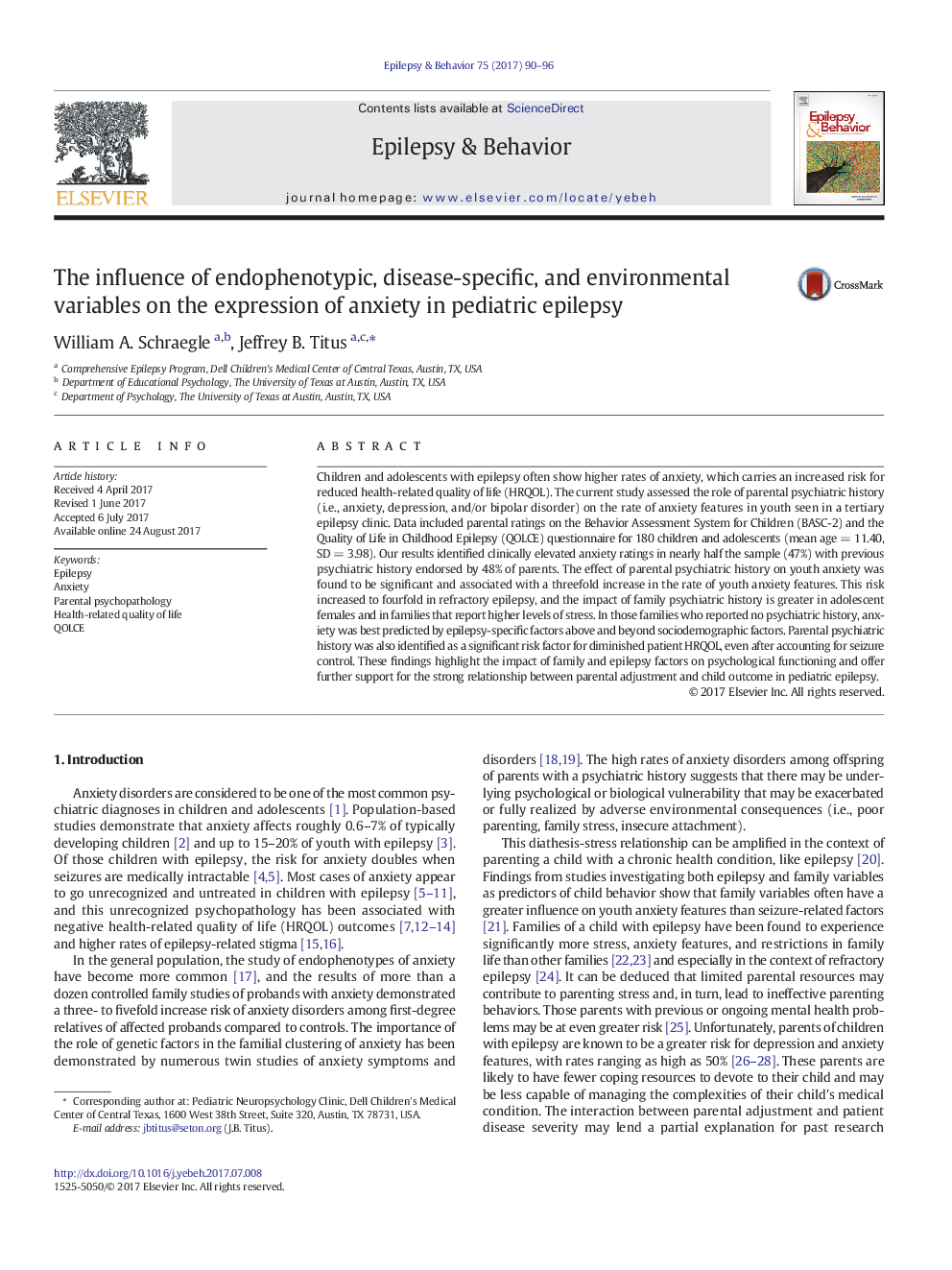ترجمه فارسی عنوان مقاله
تأثیر متغیرهای اندوفنوتایپی، بیماری خاص و محیطی بر بیان اضطراب در صرع کودکان
عنوان انگلیسی
The influence of endophenotypic, disease-specific, and environmental variables on the expression of anxiety in pediatric epilepsy
| کد مقاله | سال انتشار | تعداد صفحات مقاله انگلیسی |
|---|---|---|
| 120561 | 2017 | 7 صفحه PDF |
منبع

Publisher : Elsevier - Science Direct (الزویر - ساینس دایرکت)
Journal : Epilepsy & Behavior, Volume 75, October 2017, Pages 90-96

